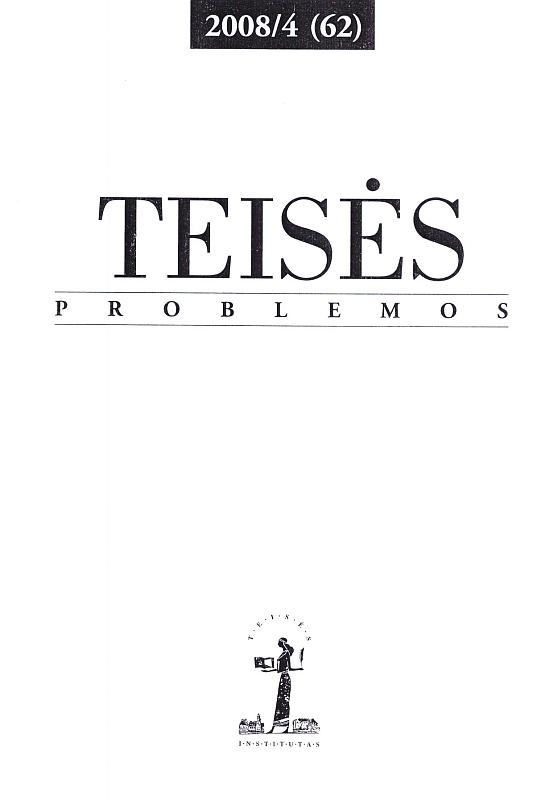Ko politologai ir kriminologai galėtų pasimokyti vieni iš kitų. Ir kodėl jie turėtų mokytis?
What Political Scientists and Criminologists can Learn from Each Other - And Why they Should
Author(s): Leslie HolmesSubject(s): Political Sciences, Criminology
Published by: Lietuvos teisės institutas
Summary/Abstract: This paper focuses on three related areas, in the analysis of which both political science and criminology can and should constructively interact – corruption, organised crime and corporate crime. All three involve criminality (though, strictly speaking, some forms of corruption do not), and hence need to be analysed by criminologists. Yet all three can pose serious threats (social, economic, political, security, legitimacy-related, etc.) to both states and international organisations in various ways, and all three can lead states and international organisations to devise policies and programs designed to address them. These threats, policies and programs are researched and assessed primarily by specialists in security studies, public policy, international relations and comparative politics – all of which are branches of political science. At present, criminologists and political scientists do not collaborate sufficiently in multidisciplinary, interdisciplinary and transdisciplinary research programs to address these three significant problem areas. This paper considers some of the concepts and methods used by criminologists and political scientists, but of which each group appears to have very different levels of awareness and will argue that enhanced familiarity with all of them will benefit both groups. This said, the paper is written from a political scientist’s viewpoint, not a criminologist’s, and it is hoped that this different perspective will trigger debate among criminologists. At present, aspects to be considered – albeit very briefly in a paper of this scale – include labelling theory, which is very familiar to most criminologists, but much less so to non-Foucauldian political analysts; control balance theory (better known to criminologists than to political scientists); ‘thick’ and ‘thin’ rational choice theory, which appears to be far more widely employed by political scientists than by criminologists; neo-liberalism; Ohmae’s ‘borderless world’ and cyber-crime; and what Vincenzo Ruggiero and Michael Welch call ‘power crime’ – a concept that is of direct relevance to both criminologists and political scientists, but which is a relatively new term that is as yet unfamiliar to most members of both groups of specialists.
Journal: Teisės problemos
- Issue Year: 2008
- Issue No: 62 (4)
- Page Range: 5-22
- Page Count: 18
- Language: Lithuanian

